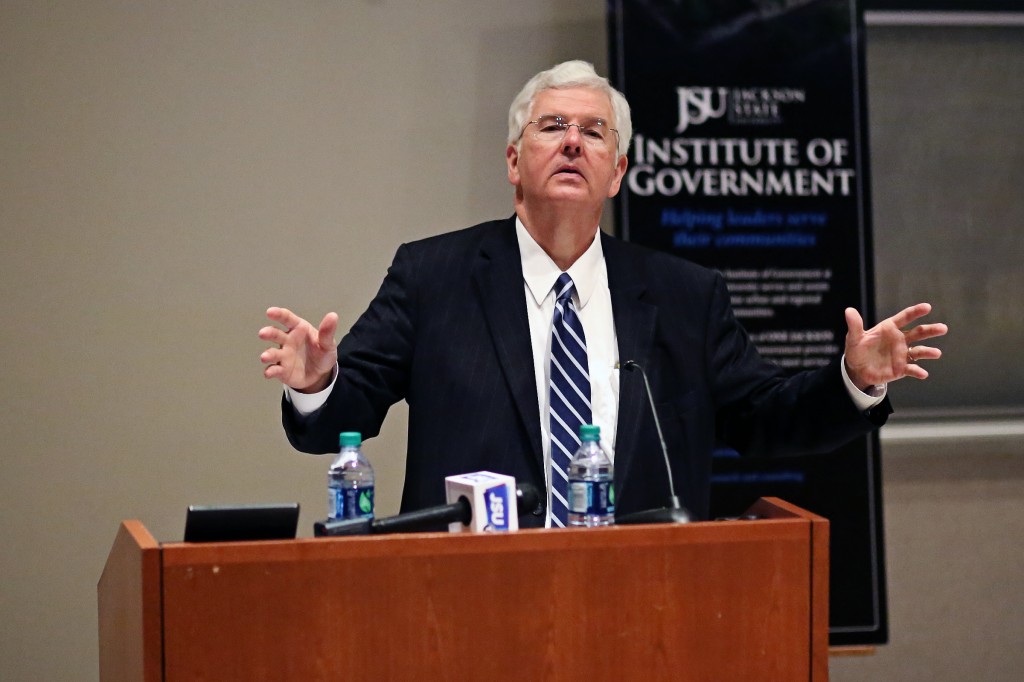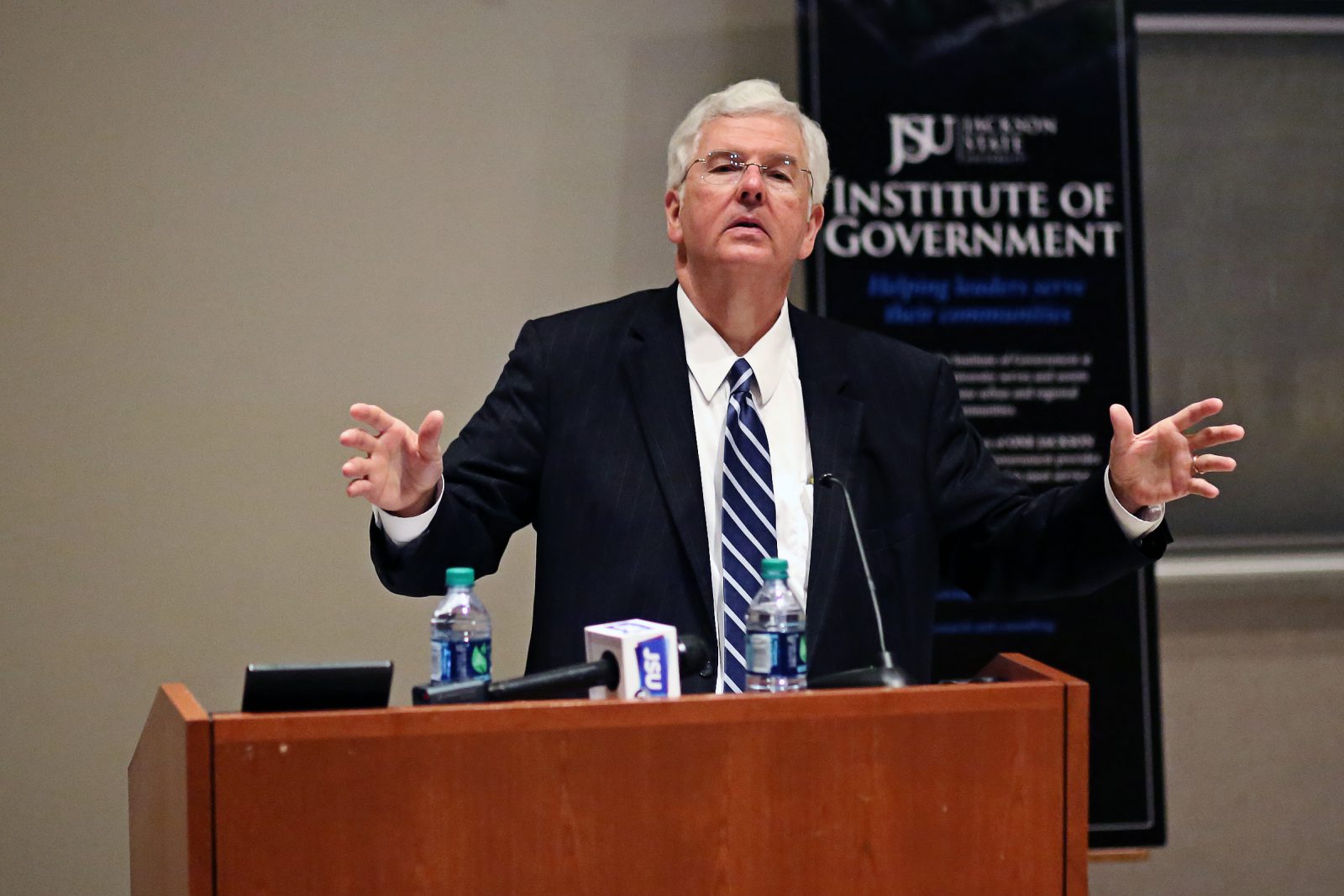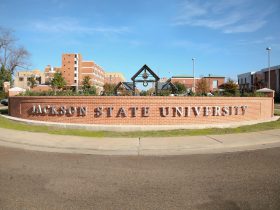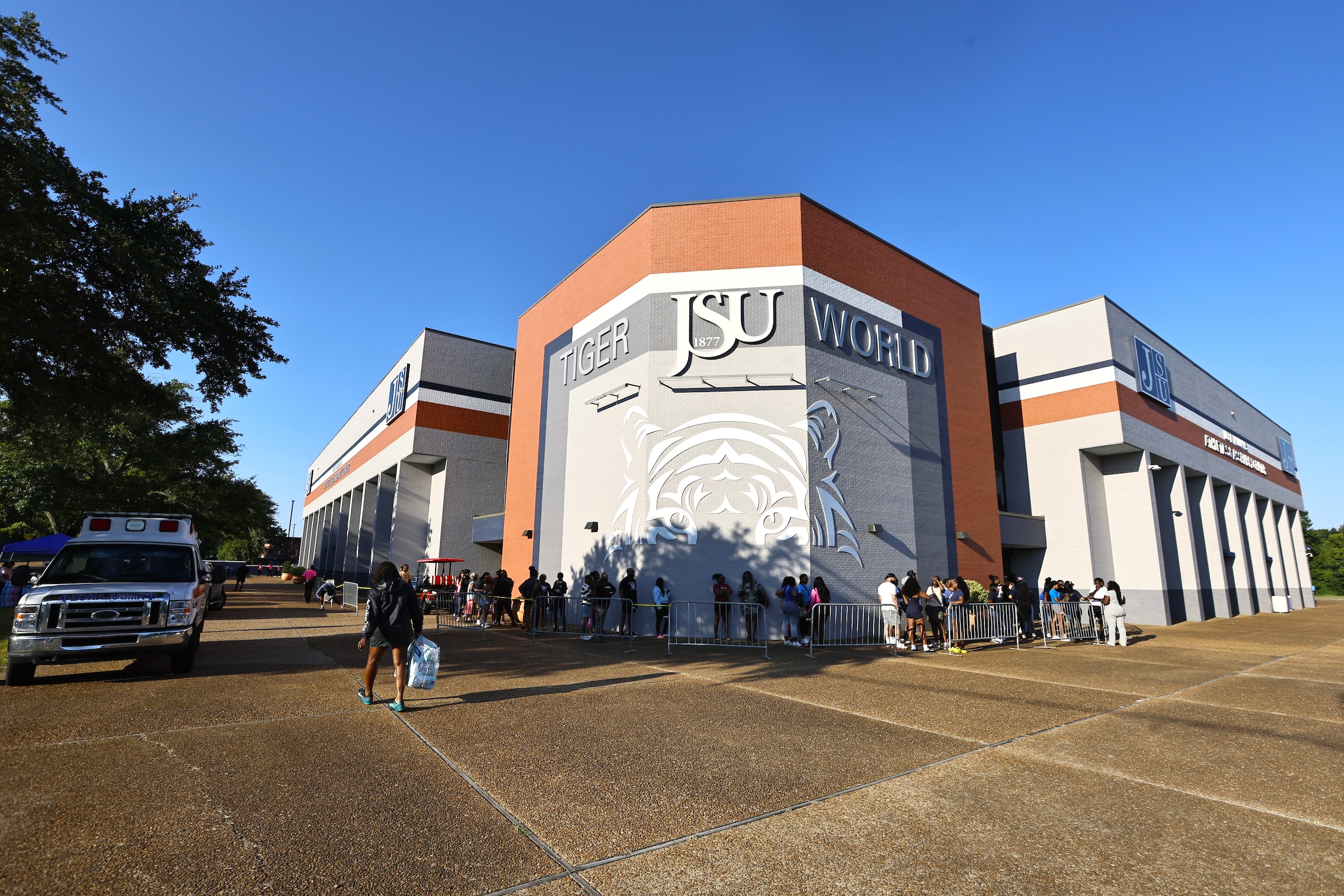Political polarization is “bad for the country,” Dr. Eric Clark, executive director of the Mississippi Community College Board, told JSU faculty and students Tuesday as part of the Mike Espy Scholars-In Residence Series.

Clark, a former Mississippi secretary of state and state legislator who has announced he is retiring next year after 40 years of public service, said that he’s learned two main lessons about politics:
— One, that most political decisions are made “between the two 30-yard lines,” in football parlance, or the middle of the field;
— Two, that whatever the issue, if politicians want to make a deal or find the answer to an issue, “they can deal 30 to 40 percent of the time.” But, he added, if they don’t want to make a deal, “it won’t happen 100 percent of the time.”
Clark spoke after remarks by Dr. Otha Burton, executive director of the JSU Institute of Government which sponsors the series, and by Dr. Deborah Barnes, dean of the College of Liberal Arts, and Dr. Robert Luckett, director of the Margaret Walker Center for the Study of the African American Experience.
The series was begun last spring, Burton said, when former U.S. Agriculture Secretary Mike Espy gave a presentation. Afterward, JSU President Dr. Carolyn W. Meyers named the series in honor of him and his career in public service.
Barnes, in introducing the topic “The Dangers of Polarization in American Politics” that Clark would address, said our time is one of “interstices” or small, narrow “spaces between,” that we as a nation and individuals need to occupy instead of going to the poles on issues.
Luckett outlined Clark’s current and former career, including his 40 years of teaching, as well as decades of serving in Mississippi politics. Clark received a bachelor’s degree from Millsaps College, a master’s degree from the University of Mississippi and a doctorate in history from Mississippi State University. Clark taught history and government at Jones County Junior College, Mississippi College and Belhaven University.
During his talk Tuesday, Clark listed causes of political polarization:
— Coarsening of American culture, with insults and intolerance replacing civil discourse
— That the “greatest generation” of those who fought in World War II had a better sense of service and sacrifice and a greater appreciation for the common good
— Demonizing those who disagree and listening and watching the media only when those agree with you has insulated the public from considering opposing points of view
— A 24-hour news cycle sensationalizes every event and issue, making exaggerated programming more valued than sensible, reasoned discussion
— The Internet gives “every nincompoop” a voice, a platform, and it’s anonymous, thus cheapening the conversation and producing a lot of noise with no filter
— Constant political campaigns with constant fundraising tilting political influence to the wealthy and powerful
— Negative attack ads decrease voter interest and increase public cynicism as some come to believe all politicians are crooks
— Political gerrymandering (political districts drawn to benefit a person or party) that concentrates voters into blocks; the result is that in this upcoming congressional election in November, only 20 percent of the House seats are competitive and 80 percent are “safe” for a party or incumbent
— Since “safe” districts predominate, the real decision-making for officeholders shifts to the political party primaries, where usually only those with the most extreme views vote, so that more moderate candidates are ousted.
All this, Clark said, leads to the current belief in political circles that winning elections becomes more important than governing and compromise “becomes a dirty word.”
Clark outlined pieces of legislation in history that he believed were models for today because they involved: 1) a clear need; 2) a national conversation; and 3) bipartisan compromise.
At the conclusion, a JSU student panel asked questions after Clark’s remarks. A public panel will do the same at a second event from 1-3 p.m. Oct. 28 at the Mississippi Arts Center, 201 E. Pascagoula Street, Jackson.
Clark’s lecture will be accepted as a paper that will become part of the archives of the government institute and will be uploaded to the JSU website for public viewing.
For more information about the lecture, contact Christine M. Nielsen christine.m.nielsen@jsums.edu (601) 979-2339 at the JSU Institute of Government.









